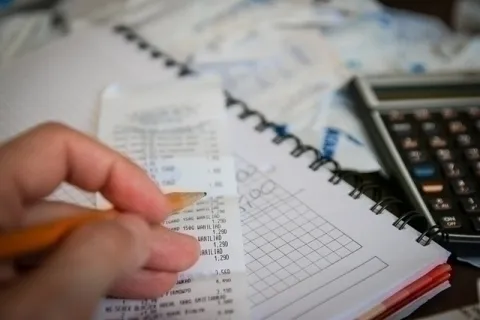Can you discuss the implications of the Dodd-Frank Act on your trading activities?
» Rules, Regulations, and Compliance- The Dodd-Frank Act increases transparency by requiring trades to be reported to clearinghouses, potentially affecting market pricing strategies.
- New capital requirements and risk management standards may increase trading costs and reduce leverage for traders.
- The Volcker Rule, part of the Act, restricts proprietary trading by banks, which could lead to decreased market liquidity and wider bid-ask spreads.
Was haltet ihr von diesem Dodd-Frank Act und wie beeinflusst der eure Handelsaktivitäten?
I think the Dodd-Frank Act has had a significant impact on trading activities, especially in the financial markets. It was introduced to regulate the financial industry and protect consumers from abusive practices. One of the key implications of this act is the increase in regulatory requirements and stricter oversight on financial institutions.
For traders, the Dodd-Frank Act introduced new rules and restrictions, particularly in areas such as derivatives trading. It aimed to bring transparency and accountability to these markets, but it also added additional compliance burdens for traders. Some argue that these regulations have limited liquidity and hindered market efficiency.
On the other hand, proponents of the act believe that it has helped prevent another financial crisis by reducing systemic risks and promoting fairer practices. They argue that the increased oversight and regulations provide a more stable and trustworthy trading environment.
Overall, the Dodd-Frank Act has sparked ongoing debates and discussions regarding its effectiveness and unintended consequences. It's important for traders to stay informed about the changes introduced by this act and adapt their strategies accordingly.
Right, so the Dodd-Frank Act has really shaken up how we trade, particularly when it comes to derivatives and securities. The Act has tried to increase transparency in these areas, meaning there's a whole lot more reporting and disclosure needed now. This can slow things down a bit, but hey, the goal is to try and stabilize the market and protect us from another big crash, right?
Also, with the introduction of more oversight from regulatory agencies, it seems that there's nowhere to hide anymore. Not necessarily a bad thing, to be fair. However, it can also mean increased costs for compliance which might put some people off.
Swings and roundabouts, I suppose - on one side we've got improved consumer protection and attempts at a more stable market, but on the flip side, it's made trading a bit more complicated and a heck of a lot more bureaucratic. So, has the Dodd-Frank Act affected you folks more on the trading floor, or are you just dealing with the paperwork side of things?
Speaking specifically on the trading implications of the Dodd-Frank Act, it's true that the increased regulations have added a layer of complexity. But the silver lining is that it's encouraging a more diligent risk management approach. Don't forget, the Act was basically designed to provide a safer, more efficient and transparent financial system.
For me, the trick is to use it as a tool rather than viewing it as a hurdle. The regulations can be useful in benchmarking and improving your existing trading strategies. For example, it requires firms to have robust risk management procedures and pre-trade transparency in the swaps market. This can be beneficial for your investment strategies as it gives a clear insight into market supply and demand.
Also, keep an eye on regulatory adjustments and reforms. The regulators are continually refining the rules to make them more effective. Understanding these changes can help you strategically adjust your trading activities, to not only remain in compliance but also gain competitive advantage.
Remember, every regulation is a result of market situations and by understanding their implications, you are essentially predicting market trends. So, depending on how you adapt and respond, the Dodd-Frank Act can provide opportunities alongside its challenges. To navigate, consistent adaptation and proactive compliance are keys. How do you see it folks?
Absolutely, it has definitely leveled the playing field for a lot of us. More clarity, less risky business. It's a win-win for traders in my book. How about you guys? See any other perks?
Sure thing! We might want to also consider the impact of the Volcker rule, part of the Dodd-Frank Act reforms, that limits the proprietary trading activities of banks. Essentially, it prevents banks from making certain kinds of speculative investments if they are not on behalf of their customers. This can have a serious effect on banks' profit margins and in turn, significantly shape the markets.But, like anything else in life, there's always opportunity in the face of change. So, instead of looking at it from the angle of restrictions, try seeing the potential for a safer, less volatile market. It's all about navigating the new terrain confidently.If you ask me, this is the time to rethink strategy, folks. Be it through diversifying your trading portfolio, considering safer, long-term investments or exploring markets outside the traditional financial segments. There's no one-size-fits-all strategy, but there's definitely a way to turn Dodd-Frank's implications into opportunities.So, have you started strategizing or still in the phase of wrapping your head around the reforms?
No doubt about it, the Dodd-Frank Act has made a big splash in the world of trading. One might argue that increased regulation and oversight can lead to a more stable and secure financial environment. But, on the flip side, could it also stifle innovation? With more rules to follow and hoops to jump through, is there a risk of discouraging the creation of new financial products or strategies? It’s certainly changed the landscape, and it’d be interesting to hear more perspectives on this. What are your thoughts?
With all the talk about the supposed benefits of the Dodd Frank-Act, something that I think we're overlooking is the potential downsides. Sure, regulation is important to create a safer trading environment and protect against malpractices, but excessive rules can also slow growth and innovation. There's a thin line between necessary oversight and over-regulation, and I believe we are teetering towards the latter with this Act. While large corporations have the resources to navigate these complex regulations, smaller firms and start-ups might find themselves at a disadvantage which could lead to stifling competition in the market. Not to mention, this heavy focus on meeting compliance requirements might detract traders and firms from their main goal, which is to create profitable trading strategies. I'm curious, has anyone else felt this way or is it just me?
Though we can debate about the effects of the Dodd-Frank Wall Street Reform and Consumer Protection Act on our trading methods, we can unanimously agree on one thing. It has caused pivotal changes in our trading environment, forever changing the landscape of financial markets. Considering this new financial infrastructure, I encourage everyone to discuss: Has the Dodd-Frank Act affected the way we analyse the markets? Has it had an impact on our approach to risk? And to what extent has it influenced our trading strategy? Let's spur this conversation forward, folks!
Definitely, the Dodd-Frank Act has added a new layer to our risk assessment strategies. With stringent regulations now in play, have we subconsciously become more risk-averse? Let's hear your thoughts!
Dodd-Frank Act? More like The-Dodd-Frank-Opera-Act! Sometimes I feel like I need to put on a show just to keep up with all the twists and turns! Anyone else getting these Broadway vibes?
You make a really great point! You could also argue that it's not just about keeping up with the changes, but also perfectly understanding what's behind them. The Dodd-Frank Act did bring new restrictions, but also new opportunities. Wouldn't you say?
Spot on! The Dodd-Frank Act is a game changer in many ways, particularly if you consider the impact it's had on transparency in the trading world. I mean, let's face it, before the Act came into play, the perils of opaque trading were well and truly out in the open during the financial crisis. But hey, we gotta roll with the times, adjust sails and ride the wave. Anyone else feeling the winds of change?
- Which trading platforms are known for their high uptime and reliability? 2
- How does a trading bloc like the EU impact trade? 4
- How does the Producer Price Index (PPI) data impact the market? 8
- What tools can help me perform a fundamental analysis of a company? 2
- What are some trading platforms that allow for social trading/copy trading? 6
- Are there any tools that can help me with trading psychology and discipline? 2
- How do I deal with the fear of missing profits, or FOMP? 3
- Can you explain the concept of slippage in trading? 1
- How does seasonality impact market analysis? 4
- What is a securities' yield and how can it be analyzed? 5
- How do you navigate the regulations surrounding short selling? 318
- What are Forex trading and its basics? 290
- How does seasonality impact market analysis? 253
- How do you manage stress during volatile market conditions? 217
- How does a stop-loss order work in trading? 205
- What tax implications should I consider when trading? 200
- What are the best platforms for online trading? 193
- What's the difference between day trading and long-term investing? 190
- What is swing trading and how is it different from day trading? 185
- How do you avoid letting past trading successes or failures impact your future decisions? 180

We have compared the best crypto exchanges for you. Just take a look at our free crypto exchange provider comparison.

We have compared the leading crypto tax tool providers for you. Check out our free crypto tax tool provider comparison.
Blog Posts | Current

From Chaos to Consistency: Why a Trading Setup is Key to Success
Trading is an exciting and rewarding way to make money, but it can also be overwhelming for beginners. One of...

Don't Fall for the Hype: The Risks of Using Trading Bots
As a beginner trader, you may have come across the idea of using trading bots to automate your trading and...

The Trader's Dilemma: Dealing with Losses in Trading
As a trader, losses are an inevitable part of the game. Even the most successful traders will experience losing trades...

Automating Your Trades: The Power of Trading Algorithms
As an avid trader, you've probably heard the buzz around trading algorithms. But what are they, and how can they...

Mastering Your Mindset: The Key to Successful Trading Psychology
As a trader, your success in the markets depends not only on your technical skills and market knowledge, but also...

Maximizing Returns: The Importance of Rebalancing Your Portfolio
Rebalancing your portfolio is an important part of any long-term investment strategy. It involves periodically adjusting your portfolio's asset allocation...

Breaking Down the Buzzword: What is a Trading Bloc?
Are you familiar with the term "trading bloc"? It may sound complicated, but it's actually a concept that can have...

Different Cost Average Trading Strategies
Cost Average Trading is one of the most popular trading strategies used by investors to minimize their risk and maximize...

The 5 most common mistakes made by crypto traders
The 5 most common mistakes made by crypto traders Crypto trading is becoming increasingly popular, but there is great potential to...

Protect Your Capital with Effective Risk Management in Trading
Risk Management As a beginner trader, you're likely eager to dive into the markets and start making some profits. However, before...
